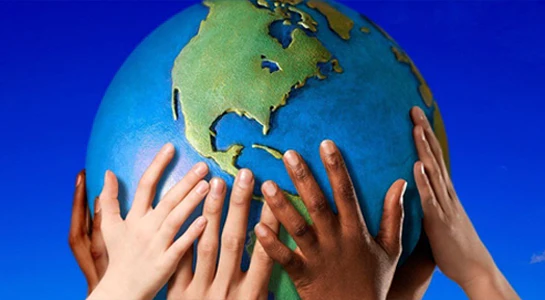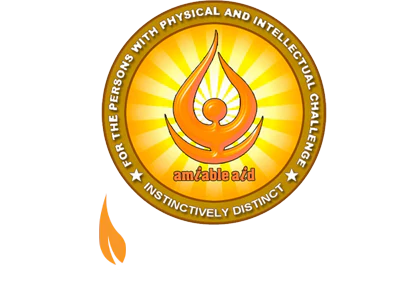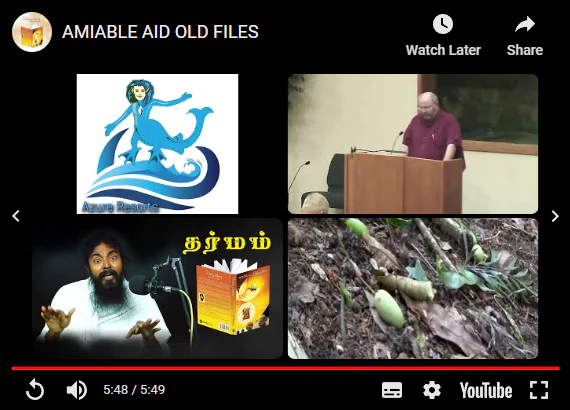About
AMIABLE AID FOUNDATION
AMIABLE AID FOUNDATION is a secular, non-governmental, non-profit, non-political and non-sectarian social organization whose mission is committed to guide, assist, direct, coordinate, strengthen and reshape new opportunities for people with intellectual challenge. AMIABLE AID Foundation maintains specialized resource centers that strive to integrate people with disabilities socially, economically, educationally and culturally into society.
In the aftermath of the largest natural disaster, the South Asian tsunami, AMIABLE AID participated in corpse retrieval, cremating bodies, rescuing people amidst the destruction, providing medical care to survivors, distributing relief supplies, undertaking de- trauma, conducting counseling programs, and rebuilding infrastructure destroyed by the tsunami in the Nagapattinam district of southern India. Humanitarian aid includes a foster home for tsunami orphans, capacity-building initiatives for tsunami widows and vocational training for the disabled – apart from regular programs for children with intellectual challenge.
Following the successful completion of major social projects in the initial and consolidation phases of tsunami relief, the different level of sensitivity incites AMIABLE AID to focus on its usual work to protect the interests of intellectually challenged children and adults – due to the different sensitivities involved.
Because AMIABLE AID implements the best supportive care system, it has earned a reputation of strong system care providing credential-based organization. Backed by the strength of its reputation and the confidence it gained from the accomplishment of major tsunami projects, AMIABLE AID has set its sights higher to reach more people in need. The result has been an unprecedented increase in service utilization across a broad social spectrum. This opportunity is a resource that AMIABLE AID is eager to expand. To drive global growth, Amiable Aid is investing its resources and energies in building a chain of care homes, hospitals, resource and research centers in various geographic locations, partnering with established local organizations. In Aghamalai, Tamilnadu, South India, Amiable Aid is currently establishing a full-fledged nursing home, medical center and research center for persons with physical and intellectual challenge – with focus on elderly.
GENESIS ORIGINS – GENERAL CONTEXT

Social institutions are becoming an essential dimension of public life at all levels and in all parts of the world. The government, with its limited resources and enormous demands, found itself increasingly unable to cope with the increase in political, economic and social problems and had to rely on the support of voluntary organizations and volunteers. Thousands of volunteer organizations stepped forward to hold the torch of human welfare high in partnership with the government.
A close look at the efforts of these agencies reveals that, due to lack of coordination, (1) there is uneven development of welfare services, with advanced areas receiving a large share and certain backward areas not developing activities, (2) duplication of activities, with different agencies organizing the same activity in the same place, (3) qualitative standards are not keeping pace with quantitative expansion, and (4) the rigid rules and conditions attached to the various assistance programs discourage voluntary organizations from taking advantage of them.
ORIGINS – SOCIAL CONTEXT
In terms of social context, the primary social target of AMIABLE AID is the disability sector. They are denied the most ordinary aspirations – to go to school, to work in the fields, to go to religious services, to get married – the prosaic components of the life cycle – are denied to them. Despite the profound and consistent denial of their human rights, an estimated 50 million men, women, and children with disabilities have remained on the outer periphery of public policy and social action in India. In most cases, they are victims of extreme social prejudice and exclusion, even as they struggle to realize their potential to live full, dignified, and useful lives.
And, people with disabilities are invisible in the political agenda, in the struggle for human rights, in development strategies, and in social science research. Nothing has been done to improve the existential experiences of women and girls living with disabilities in rural areas. More serious are societal attitudes of shame and ridicule that often begin in the family, further immobilize people with disabilities.
Feelings of isolation and consistently low self-esteem are also common among people with disabilities. They feel humiliated by their sense of dependency for even the simplest acts of daily living, such as bathing, eating, and attending call of nature. For older people with disabilities who do not have younger caregivers, the situation is even more difficult.
In this context, AMIABLE AID was established to muster an effort on scientific lines to organize activities for the benefit of people with physical and mental disabilities who are impoverished in the weaker sections of society, with emphasis on rural, backward and remote areas.
GENESIS (ESTABLISHMENT)
Previously, AMIABLE AID operated under the name Eshaas Charities. Eshaas started its activities in 1996 and was officially renamed and restructured as AMIABLE AID FOUNDATION in 2010. The establishment of the organization is a big step given the complexity of the task it has set for itself. In the year 2022, Amiable Aid Foundation was converted to non profit section 08 private company.
ORGANIZATIONAL FRAMEWORK
AMIABLE AID is registered under section 08 Companies Act, and the entire organizational apparatus is made up of volunteers who work selflessly for no personal gain, as well as a small but competent number of staff employed at all service centers.
AMIABLE AID is supported by networks of associated organizations at the local and international levels.

STATUS AND CAPACITY
AMIABLE AID is a voluntary organization that works with a large number of non-governmental organizations throughout India and can harness the energy, enthusiasm and initiative of a large number of people from around the world. It has experience, the necessary expertise and a large network to address the various problems of the weaker sections of the population and the voluntary sector and to become an active partner in development, in order for it to achieve its goal and carry out the tasks entrusted to it, AMIABLE AID can acquire and negotiate with its representatives privileges, immunities, exemptions and other benefits that it deems necessary for the benefit of itself and its affiliated organizations.
ECONOMIC IMPERATIVES / RESOURCES
The financial resources of AMIABLE AID are mainly the sale of organic products, herbal oils, milirkanagan, sale of books, namely Seppadu Viddhai, etc., and other sources of income are membership fees and loans, grants or donations from associations, individuals, collections from organized events, and other fees that may be charged by AMIABLE AID for special services rendered
Although the lack of funding has not significantly hindered the implementation of the plan, thanks to the timely generous support of members, well-wishers and friends, it will take time to align resources to match the perspective plans of AMIABLE AID to expand activities.

PLEDGE YOUR SUPPORT
Support GITGOH: GIve The Gift Of HealtH!
Transform health tourism in Tamil Nadu with us. Exceptional facilities await you in the serene Aghamalai Hills:
Poongaviyam Haven: Senior care.
Azure Bliss: A tranquil sanctuary for holistic recovery.
Milirkanagam: Ancient healing and Tamil Siddhar wisdom.
Aghamalai Pizhisal: Revitalizing therapies and more.
White Noise Breathing: Siddhar's path of meditation.
Milirkanagam and white noise breathing promote well-being. Our approach combines medication and meditation for rejuvenation. Milirkanagam Strengthen us, fight disease and relax with calming white noise breathing. Experience a unique wellness journey that combines ancient and modern practices. Support GITGOH for better health.
Get In Touch
Amiable Aid Foundation
Aghamalai Road, Sothupparai Dam, Periyakulam Taluk, Theni District - 625601
It is a noble endeavor taking shape in this present period that everyone should be proud to participate in and contribute to.
Support our project to enhance well-being, boost the local economy, and preserve Tamil Nadu's cultural heritage. Funders gain exclusive access to these exceptional facilities.
Join us in creating a lasting legacy of health and wellness. Give the Gift of Health through GITGIOH!
Invest in the future of health tourism. Contact us for more information.

Dear Friend,
To experience the website, please turn on the volume.
If you plan to visit the website with volume muted, please click here.




